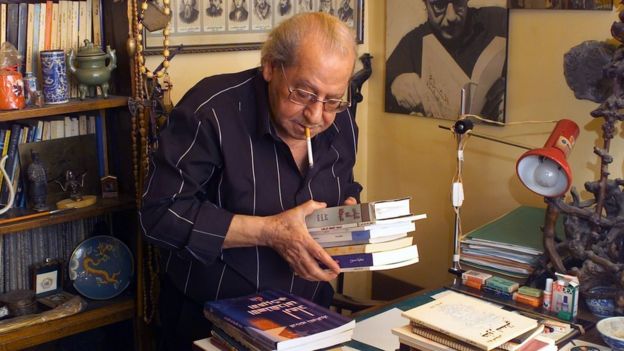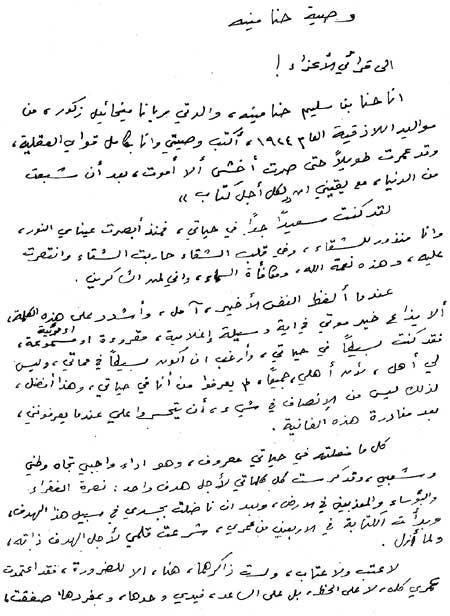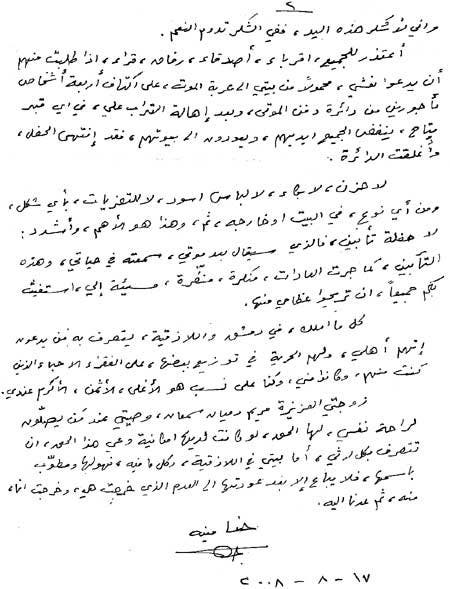
The feast did not come until death snatched away from us a novelist we love very much. It was announced in Damascus, on Tuesday, the death of the Syrian novelist Hanna Mina, at the age of 94, he spent writing and authoring novels, and became one of the most famous Syrian and Arab novelists.
Although he recommended that the news of his death not be published in any media, the media were not able to specifically abide by this part of the will, so they rushed to publish the news of his death, including the official Syrian agency, SANA, and other media outlets. .
The novelist Hanna Mina was born in 1924 in the Mediterranean province of Latakia, and he was a “votive” for misery, since his eyes saw the light, according to his will that he wrote in his handwriting, on August 17, 2008, and it was published by various media, and provoked wide reactions, in that the time.
Mina lived his first childhood between Iskenderun, which is currently under the Turkish authority, and the city of Latakia, and knew the misery that he talked about in his will, since he obtained an elementary education certificate in 1936. Then he was forced to stop continuing his studies and engage in work, at such an early age. In which he began to move in search of any work, even if he was a “salaam” here or there.
Mina was forced to leave the Iskenderun Brigade, after Turkey announced its control over it, in 1938, so he fled back to Latakia with the rest of his family. He worked as a porter in the port of Latakia, and his first beginnings were there, in the partisan work of seeking to establish a union for port workers, and he was distributing the leftist “Voice of the People” newspaper, in the streets, to the people. Damage to their social status, so he was injured after being stabbed with a dagger to the point where they thought he was dead.
From his work as a porter in the port of Lattakia, then as a distributor of newspapers in the streets, to working as a barber, and this profession earned him literary contact with people, as he helped write letters to them and some correspondence on functional government matters. Then he worked as a sailor on boats, and that was his most famous profession, which provided him with everything related to the marine world, which was the source of his fictional worlds.
After his work in the sea world, Mina moved to Beirut at the end of the forties of the last century, then returned from it to Damascus, and worked in the press, and his novels began to appear, most of them related to suffering, struggle, confrontation and struggle, and for this he considered himself the writer of “struggle and joy”, especially since he was one of those who fought French occupation, directly.
In his novels, which were inspired by the world of the sea, Minh embodied the idea of the struggle to achieve social justice, through characters in various social situations, expressing his own pain, through the “general pain” that travels in most of his novels, an expression of the value of social conflict in creating human models. She gets her share of justice, after a long, complex and multifaceted struggle. Therefore, he demanded a lot that literature be “of flesh and blood” through characters who “live among us,” according to several conversational statements he made in earlier times.
Minh expresses himself clearly, stressing that he belongs to the socialist realist school, pointing to a necessary difference between the realism of reality and the realism of literature and creativity. Therefore, he called for not to involve politics in the creative text, unless it was inspired by the writer's personal experience and his direct suffering in life.
Among the most famous novels of the late writer are (The Blue Lamps) which was published in 1954, (Al-Yater) in 1975, (The Sail and the Storm) in 1966, and (The Sailor’s Tale) in 1981.
He has published nearly fifty books, most of them in fiction, and some of them jointly or devoted to his articles and studies. Including the novel (Al-Arqash and the Gypsy), (The Sea and the Ship), (The Bride of the Black Wave) and (The End of a Brave Man), which produced a series that achieved great fame in the nineties of the last century. And the narration of (The Far Harbor), (The Observatory), (The Remains of Tyre) and (The Sun on a Cloudy Day).
When I take my last breath: Do not spread the news of my death!
He wrote his will 10 years ago, in his handwriting, in which he demanded that the news of his death not be published when it occurred: “When I utter my last breath, I hope, and stress this word, that the news of my death will not be broadcast, in any media, for I was simple in my life, and I wish to be simple in my death.”


In his will, which aroused the sympathy of intellectuals and readers to the maximum, because of the sad references it contained about himself, he stressed that he devoted his literature in the interest of “supporting the poor, the wretched, and the tormented on earth.”
And after he apologizes, to all his relatives and friends, he asks them not to carry his coffin, except through the mediation of “four hired men” from the burial department or from the church in which he will be memorialized, to put dirt on him, in “any available grave” and then they shake the dirt off their hands, as he stressed in the commandment, and return to their homes: “The party is over, and the circle is closed.”
In the will, the late novelist emphasized that he did not want any sadness, crying, or condolences of any kind, as he said, and stressed that he did not want a memorial party for him. Explaining in the will some details of his ownership, some of which he left to his wife, and others to “those who claim” to be his family, as he drew in his handwriting 10 years and four years ago.






